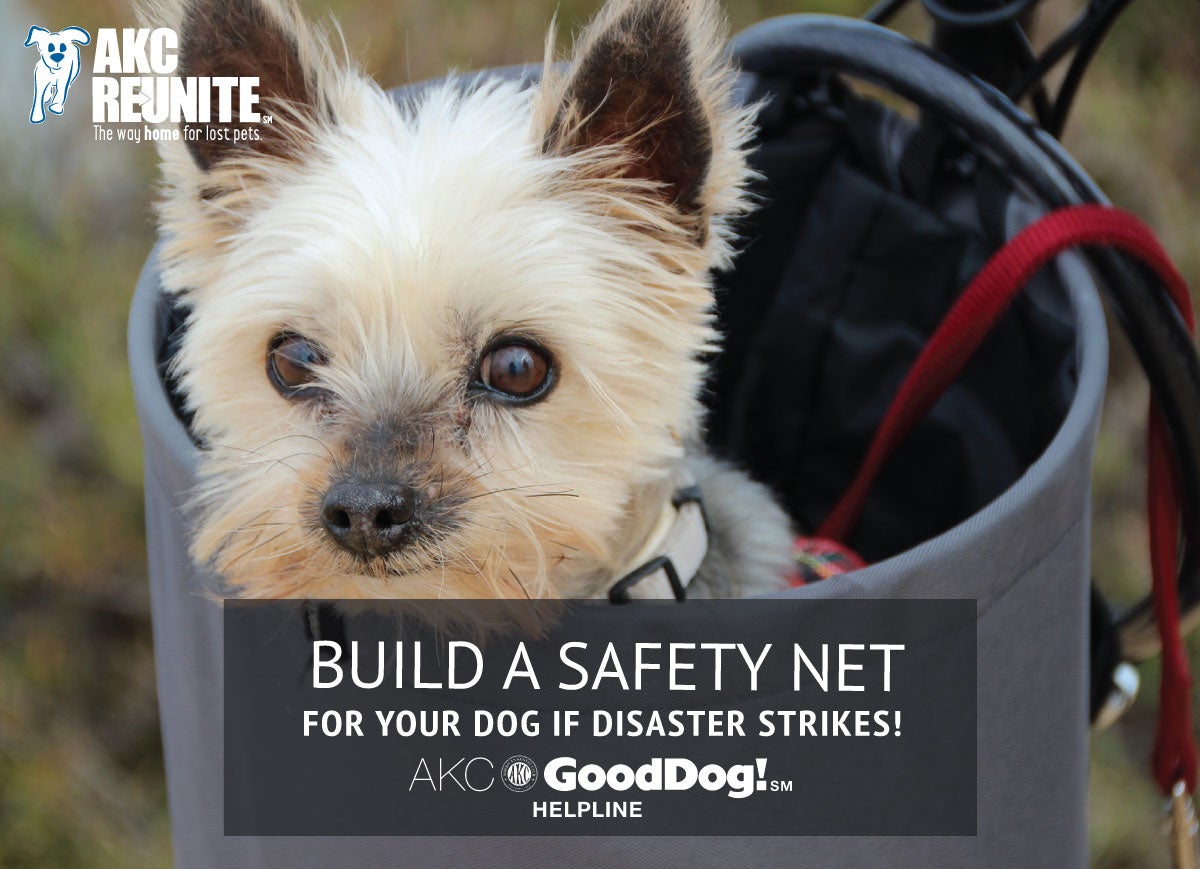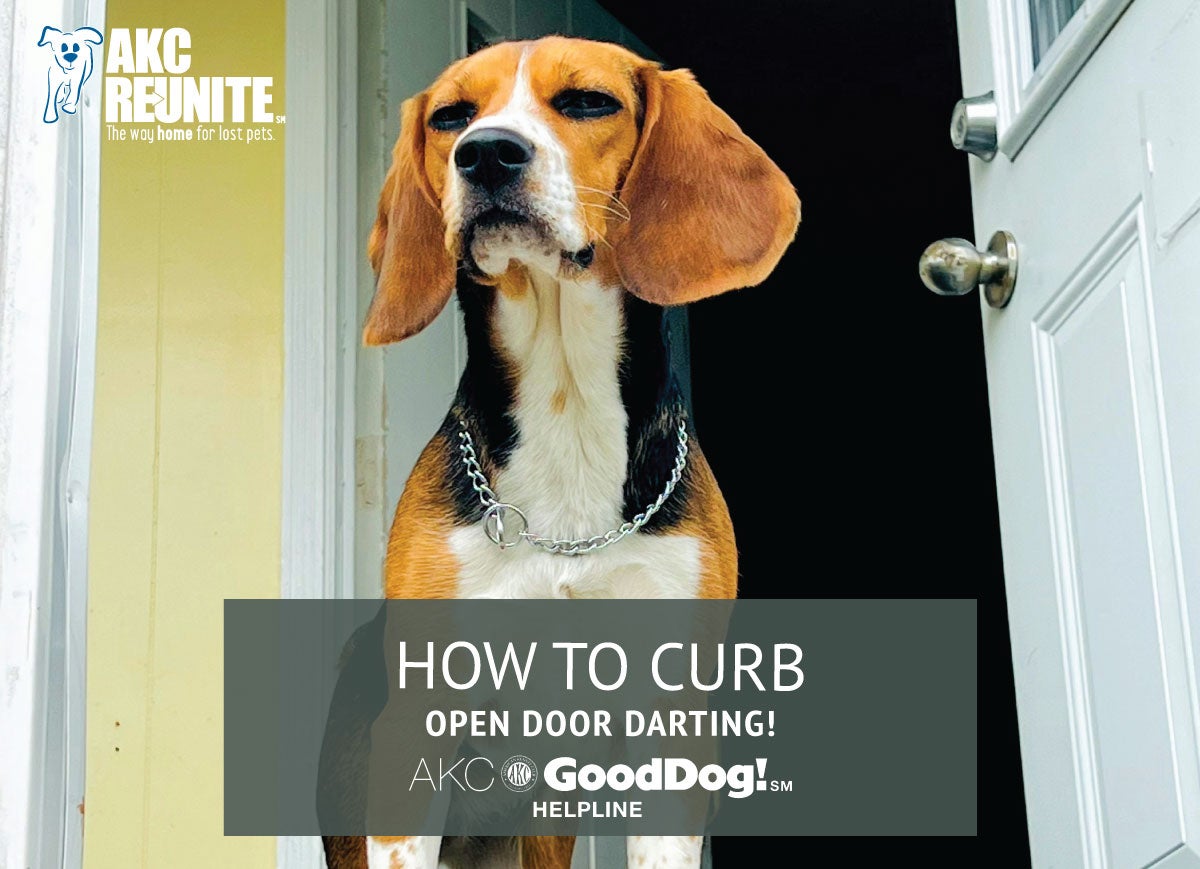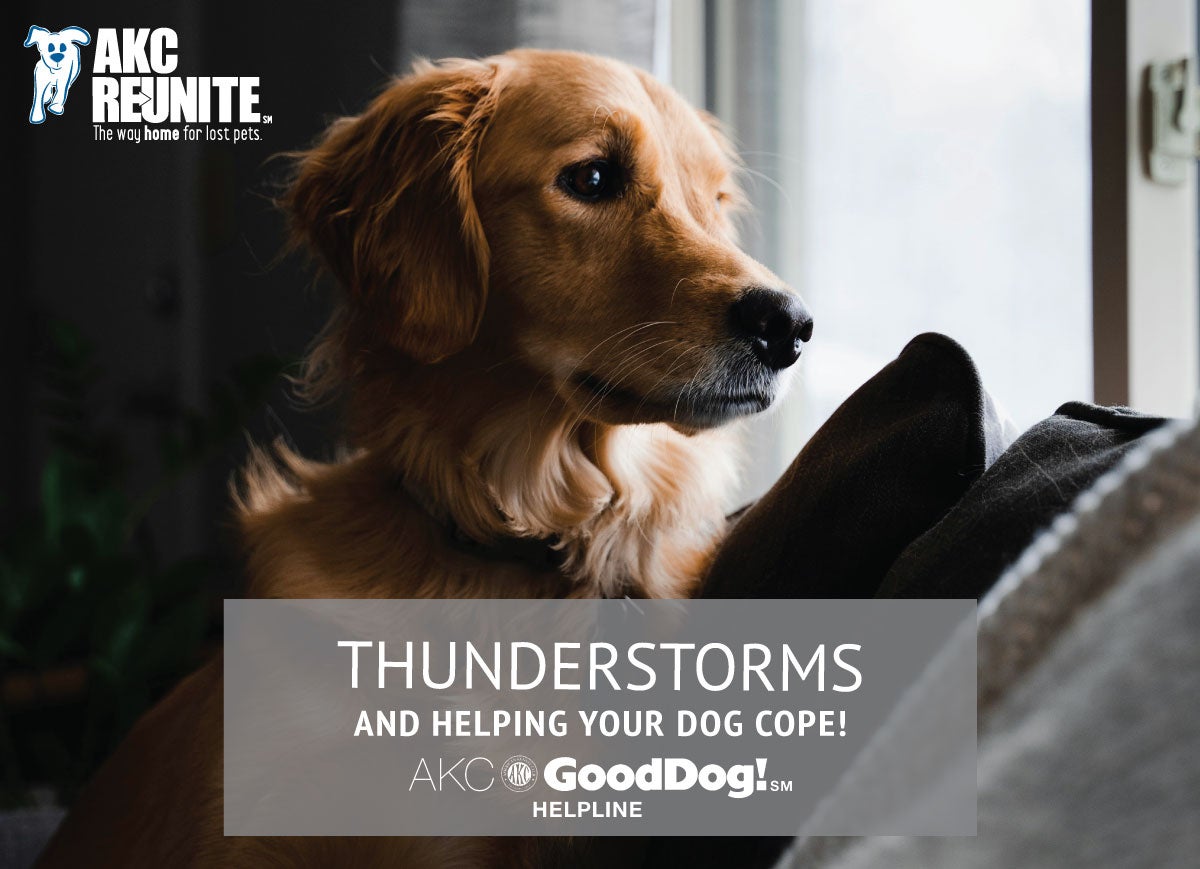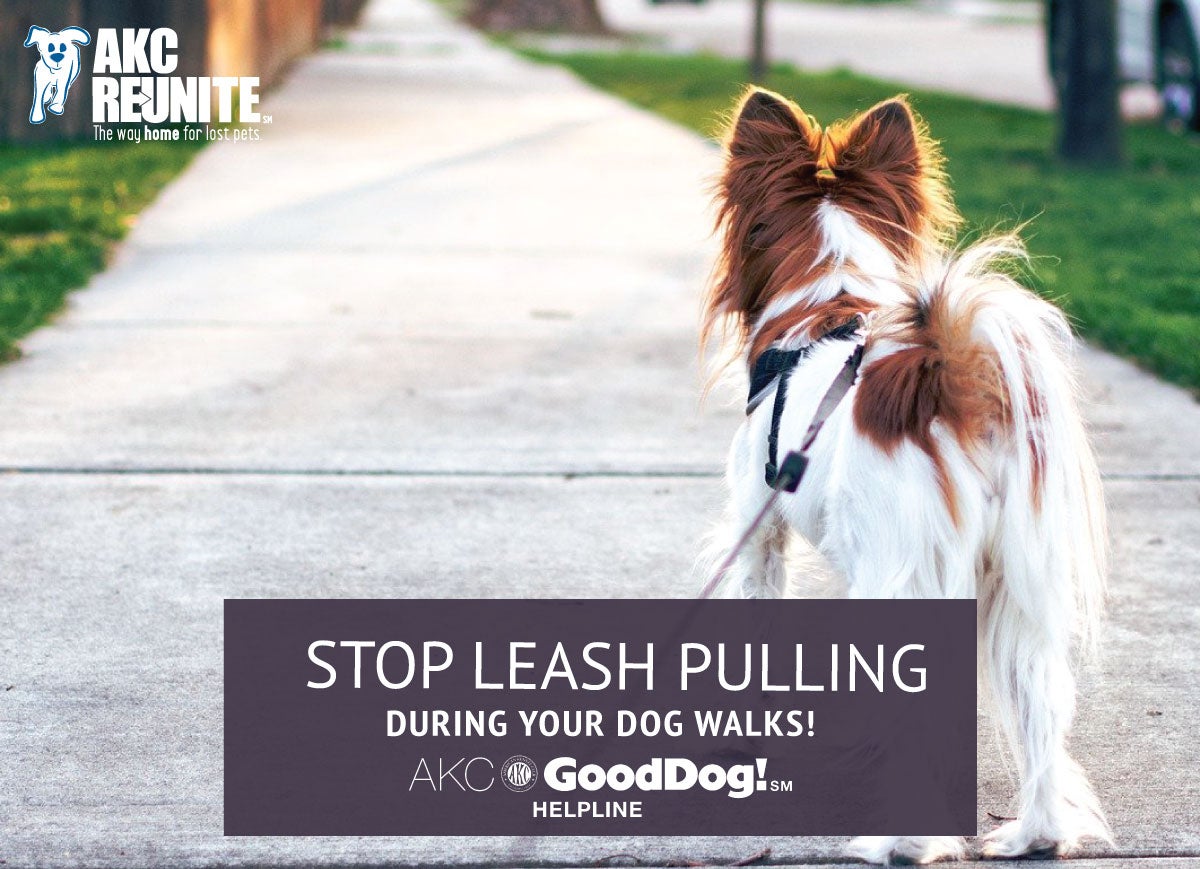Responsible Dog Ownership: Build a Safety Net for Disasters
Brought to you by the AKC GoodDog! Helpline – the AKC’s 7-day-a-week training support service
By Hilarie Erb, AKC GoodDog! Helpline Trainer
In a disaster, being prepared makes all the difference. There have been many crises in the news over the past year, solemn reminders that we should always be ready for the worst and that our best friends need to be included in the plan.
What are the biggest risks in your area? Whether hurricanes, snowstorms, fires, floods, earthquakes – tailor your plan to the likeliest occurrence. You can make seasonal adjustments, such as adding blankets in case of winter power outages or extra water and shade tents for use during hot weather.
If there is warning time, boarding your dog may be the best option. A good boarding kennel will have an excellent plan for natural disasters and could be the safest possible place for your dog.
Keep your pet’s vaccines up to date. Shelters and kennels will require them. You should also designate a back-up caregiver who can make decisions for your pet in case you are not available.
Organize a kit that includes a folder with:
- Medical records
- Contact information for yourself, your regular veterinarian and the nearest emergency vet clinic
- List of pet-friendly shelters and accommodations, in case you need to evacuate.
- Photo and description of your dog
- Ownership documentation
Training:
A dog with good manners and basic training will fare much better in a disaster. Training builds a closer bond between dogs and their people, a good thing that will be a comfort to both of you. Socialization, a critical part of training, will also help your dog be better able to cope with close proximity and handling by strangers.
Dogs feel more secure when they know what is expected of them. Additionally, the possibility of an emergency situation is a good reason to make crate training part of your dog’s life. A crate trained dog will always have a safe haven to rest in.
Things to take care of now:
- Microchip your dog and be sure your contact information is up-to-date
- Establish alternate contacts on your pet’s AKC Reunite enrollment, including out of state contacts
- Keep vaccines up to date
Emergency supplies:
- Food and fresh water, at least three days’ worth in airtight, waterproof containers. Switch it out with fresh food every few months.
- Food and water bowls
- First aid kit
- Paper towels, poop bags, and garbage bags for clean-up
- Medications and prescriptions, including heartworm and flea/tick preventatives
- Blankets and dog jackets for warmth
- Extra towels and crate bedding
- Dog life jacket
- Treats and toys to keep your dog busy
- Leash and collar with AKC Reunite I.D. tags
- Basic grooming equipment: brush, comb, nail clippers
It is easy to procrastinate when it comes to making an emergency plan. Chances are you will never need to put it into action, but the security of having one is worth the effort.
For more tips and advice on training your dog, join the AKC GoodDog! Helpline, a seven-day-a-week telephone support service staffed by experienced dog trainers: www.akcgooddoghelpline.org.
RELATED POSTS
How to Curb Open Door Darting
How to Curb Open Door Darting Brought to you by the AKC GoodDog! Helpline – the AKC’s 7-day-a-week training support service By: Hilarie Erb We have done a good job of teaching our dogs [...]
Thunderstorm Terror and Helping Your Dog Cope
Thunderstorm Terror and Helping Your Dog Cope Brought to you by the AKC GoodDog! Helpline – the AKC’s 7-day-a-week training support service By: Hilarie Erb April showers might come with thunder, and while most [...]
Stop the Leash Pulling on Walks
Does your dog’s relentless tugging make it impossible to enjoy a walk? Poor leash manners are one of the most common issues that AKC GoodDog Helpline trainers are asked about. But don’t despair; there are ways you can make it better.
